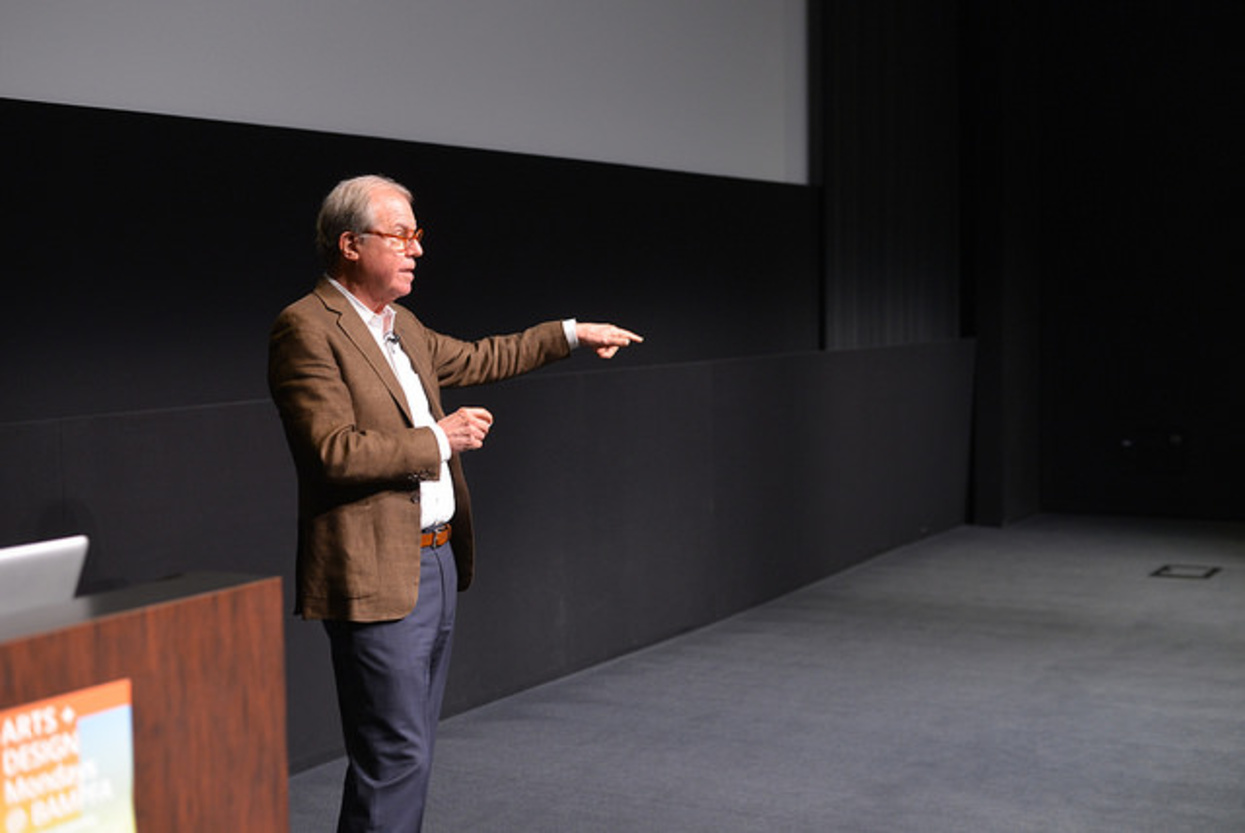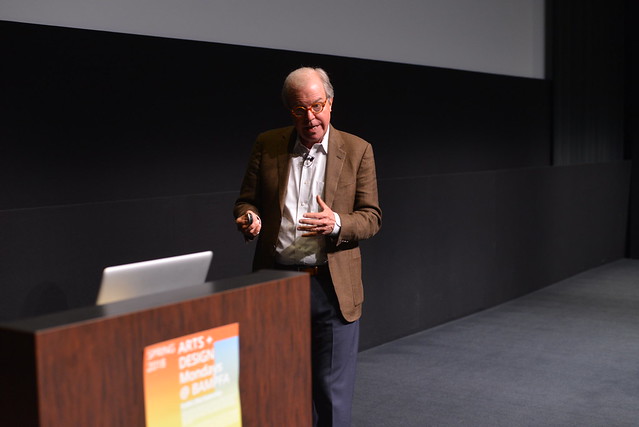ATC Revisited: Nicholas Negroponte

Recap by KC Forcier, the 2017-2018 Graduate Liaison for the Art, Technology, and Culture Colloquium.
“Connectivity as a Human Right” - Nicholas Negroponte on the Technological Evolution
In a career spanning fifty years, Nicholas Negroponte has had an intimate view of the radical technological transformations of the twentieth and twenty-first centuries, and last Monday he offered predictions for what comes next. At a packed ATC lecture, Negroponte reflected on his distinguished career, on the tenets he lives by, and on the inspiration of his colleagues in the storied early days of the MIT Media Lab.
Negroponte, who co-founded the Media Lab in 1985 and served as its director for twenty years, has a valuable perspective on technological evolution. “When you’ve seen so many predictions come true,” he told the audience on Monday, “You feel that you’ve arrived at the future.” Negroponte has himself predicted a number of major developments. In his bestselling book Being Digital, Negroponte forecast that people would come to spend more time on the Internet than watching television - an audacious claim in 1995 when the World Wide Web was in its infancy. In the early 1980s he offered the famous projection, now called the “Negroponte switch,” that TVs would switch from being connected via the air (as in the broadcast model) to being connected by cables, whereas telephones which had always been connected by cables would become connected via the air.
“People often dismiss new ideas as pretty stupid,” Negroponte noted, looking back on the many innovations - radical when introduced - which we now take for granted. Negroponte concluded his talk with his latest conjecture: that the next major innovation would be the establishment of a worldwide free Internet through a global public sector. Global human connectivity is something which Negroponte sees as more than a convenience or a catalyst for economic development, but rather as a fundamental human right. This belief in the democratizing potential of technology inspired Negroponte’s controversial and ambitious One Laptop per Child initiative, the aims and achievements of which Negroponte outlined for the audience. (BCNM’s Eric Paulos brought along one of the distinctive green and white OLPC devices.)
The proposition of global human connectivity elicited a variety of comments and questions from the audience in the Q&A following the talk. The comments ranged from questioning how something like net neutrality might play out on the proposed global network, to proposing that the idea of a global public raised the question of “how best to determine what is good for all sorts of people.” The evening thus concluded with the sort of interdisciplinary debate, and exchange of ideas Negroponte has always advocated as necessary for social and technological innovation.

